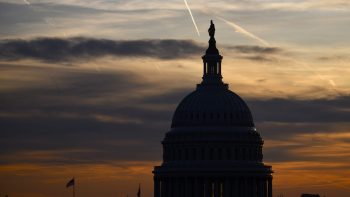The pros and cons of required 401Ks
TEXT OF STORY
Kai Ryssdal: More than half of all the workers in this country have some kind of retirement savings plan through their employer. Of course, you can look at that another way, too. That means about half of all workers don’t. Instead of leaving that half out in the cold, the Obama administration’s considering a proposal to make it easier for people to save. The White House wants to require companies that don’t offer 401k’s to start. And then to automatically deduct contributions from people’s paychecks. It’s being called an automatic IRA. Duke University behavioral economist Dan Ariely is back with us to discuss the pros and cons of required retirement planning. Dan, good to talk to you again.
DAN ARIELY: Same here.
RYSSDAL: So how does this IRA proposal work then?
ARIELY: So here is the issue: are people going to save enough by themselves, or do we need to force them into savings. And we used to have something like pension plans, what was called defined benefits, that your work place would put some money for you, and you wouldn’t have to think about it at all. And one day when you retire you would have some money waiting for you. By the way, how is your workplace? Do they give you defined benefits?
RYSSDAL: No, we get a 403B, because we’re a nonprofit, and we get contributions from the company. So it’s fairly standard.
ARIELY: So you put money in and the company matches it, right? It turns out the vast majority of people don’t max out this ability to save, and many people don’t even save enough. In fact, a couple of researchers from Harvard show that even people who are half a year from retirement, even those people, that are giving up free money because they are not maxing their 401K or 403B contribution. So the new proposal is to take it out of people’s hands. Instead of letting people decide, create what’s called the default in which they would basically automatically save. And people would have to fill some paperwork to get out of it.
RYSSDAL: So in other words you would have to take some concrete action to not save, yes?
ARIELY: Right. And creating a default by which people are going to automatically save, and they have to basically fill some paperwork to get out of it is going to be very effective in getting people to save more.
RYSSDAL: What is it about us that makes us not want to save? Even in cases like 401Ks and 403Bs for nonprofits, where the corporate match, the company match, is in essence free money. Why don’t more people see the benefit there and take advantage?
ARIELY: The problem really is thinking long-term. And the idea is that we’re just not designed to think long-term. Think about what will happen 30 years from now, we’re supposed to do all kinds of things to take care of our health. We’re supposed to exercise, we’re supposed to do all kinds of things that will pay off in the future, but cost us in the present. And turns out evolutionary we’re just not designed to do that.
RYSSDAL: Consider this in the present economic circumstance though. The savings paradox. Where everybody tells us we have to spend money to get this economy going again, but we have to save money because frankly things aren’t so good. Doesn’t this sort of hit right at the nub of that discussion.
ARIELY: Absolutely. We are changing our habits. Americans are starting to save more. That’s very good. But the fact is it will slow the recovery. But if you think about the benefits of increased savings as a habit, as something cultural that we all believe in, versus the disadvantages of a slow recovery. I think the benefits of increased savings outweigh the costs, especially because I believe this will stay with us for a long time.
RYSSDAL: See now that’s interesting. I would not have figured that you the behavioral economist would have put that much faith in the American consumer. That we would keep on saving even when times get better.
ARIELY: Well, you see that’s an interesting thing. I have faith in habits, right? If people thought every time about the cost-benefit analysis, whether something is worthwhile or not, I think as the economy went bad, people would not revise their decision. But because I believe that the way we make often decisions is not to consider them actively but in fact to rely on some habits, I think that the creation of these new habits will basically keep with us for a long, long time.
RYSSDAL: Dan Ariely teaches behavioral economics at Duke University. His book on the subject at hand is called “Predictably Irrational.” Dan, thanks a lot.
ARIELY: My pleasure.
There’s a lot happening in the world. Through it all, Marketplace is here for you.
You rely on Marketplace to break down the world’s events and tell you how it affects you in a fact-based, approachable way. We rely on your financial support to keep making that possible.
Your donation today powers the independent journalism that you rely on. For just $5/month, you can help sustain Marketplace so we can keep reporting on the things that matter to you.


















